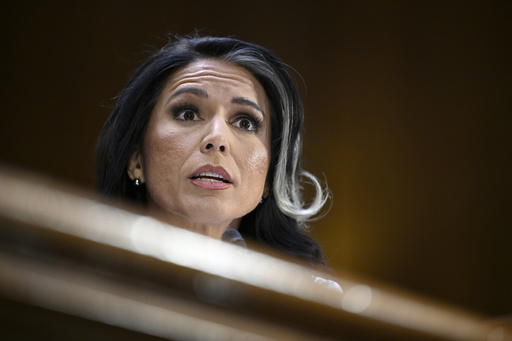
On Wednesday, U.S. President Donald Trump reshaped the country’s approach to Ukraine, revealing that he and Russian President Vladimir Putin had agreed to engage in negotiations aimed at concluding the ongoing conflict, following a notable prisoner exchange. Trump shared on social media that he and Putin had an extensive phone conversation where they pledged to collaborate closely to bring an end to the hostilities. He also reached out to Ukrainian President Volodymyr Zelenskyy, who mentioned their discussions included “opportunities to achieve peace.”
At a NATO meeting in Brussels, U.S. Defense Secretary Pete Hegseth pointed out that NATO membership for Ukraine is currently unrealistic. The situation is evolving, as various parties are weighing the implications of these discussions and the indicative policy changes coming from the White House.
In response to recent criticism regarding federal employees, the General Services Administration (GSA) announced it had no intention to surveil its workforce, insisting that claims about senior leadership pressuring employees to resign were false. This announcement came in light of a memo from the Office of Management and Budget requiring agencies to identify underperforming workers and prepare for their dismissal, further drawing attention to Trump’s administration’s sweeping actions affecting federal staffing.
As Trump’s government initiatives continue, Republican legislators are voicing concerns about the ramifications for local economies and job markets within their states. Alabama Senator Katie Britt is actively seeking to protect vital research initiatives in her state, while Kansas Senator Jerry Moran is wary of the risks that shuttering international aid programs poses to agricultural supply chains. Although Democrats have publicly criticized governmental strategies, these quieter GOP concerns suggest an impending reckoning with Trump’s policies.
The White House indicated that recent judicial decisions against Trump’s rulings are perceived as a potential “constitutional crisis,” with Trump’s press secretary labeling the judges involved as “judicial activists.” This commentary came as Trump and Zelenskyy discussed collaborative efforts to mitigate Russian aggression during their recent communications.
The prisoner swap that facilitated the release of American educator Marc Fogel also included the unearthing of Alexander Vinnik, a Russian convicted of financial crimes linked to cryptocurrency. Initially arrested on charges of fraud and money laundering, Vinnik had been extradited to the U.S. and was serving a sentence linked to his involvement with a prominent digital currency exchange.
Zelenskyy confirmed a positive conversation with Trump regarding the conflict in Ukraine, expressing readiness to explore new avenues for peace, including technological collaborations. Trump reiterated the importance of halting the ongoing conflict, pointing towards an upcoming meeting in Munich involving key figures from both nations.
In other developments, U.S. District Judge John McConnell affirmed the government’s decision to withhold FEMA aid designated for New York City, referencing concerns about misuse of funds. This decision surfaced after whistleblower reports indicated funds had facilitated unsanctioned encampments.
Continuing into diplomatic waters, leaders from Egypt and Jordan have explicitly rejected Trump’s proposals relating to Gaza, emphasizing the need for reconstruction efforts without the dislocation of Palestinian peoples. Amidst these dialogues, the voting landscape in the Senate shifted, advancing the nomination of Tulsi Gabbard as director of national intelligence, despite bipartisan skepticism regarding her previous remarks and associations.
Globally, responses to the Trump administration have paralleled these shifts, with significant criticisms aimed at the termination of international aid programs. Advocates for global reproductive health have underscored that reduced funding could have dire consequences on health services, particularly for women and girls, warning of widespread implications stemming from the reinstated “global gag rule.”
Finally, Trump has signaled the potential release of more Americans, hinting at ongoing negotiations while framing his administration’s actions as proactive and fair—claims that have been met with varied responses across political lines.

